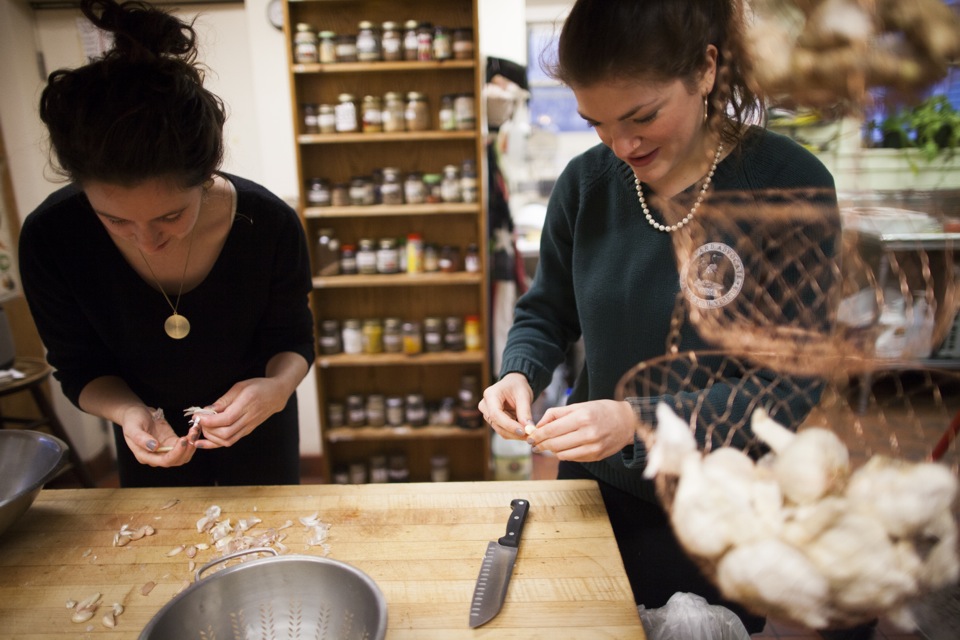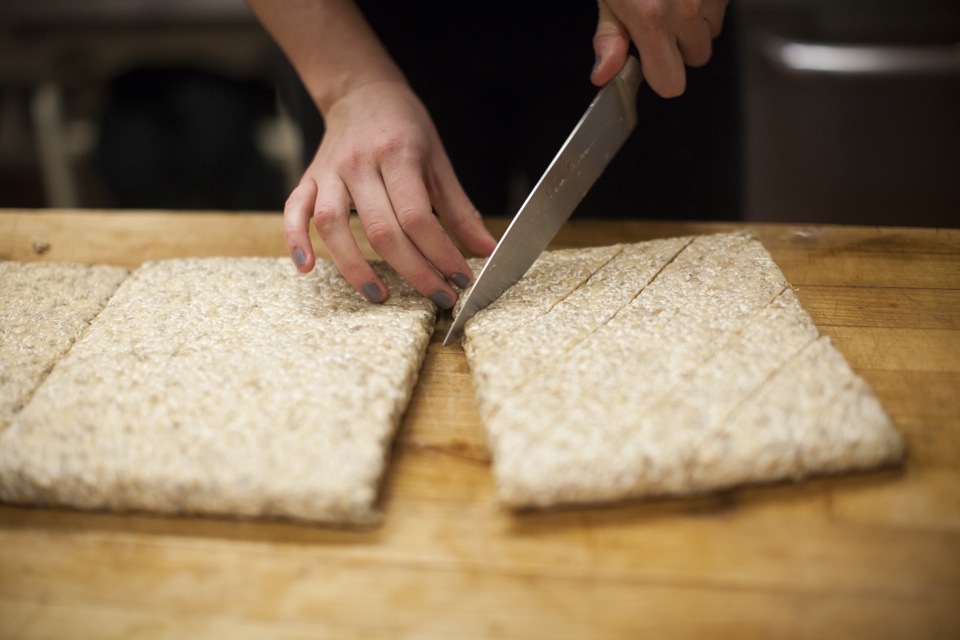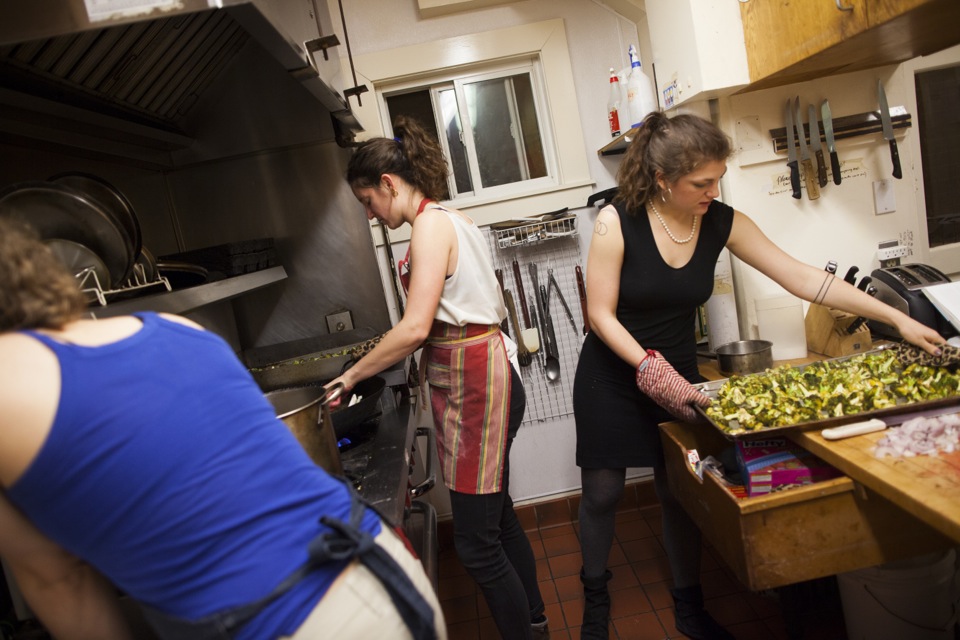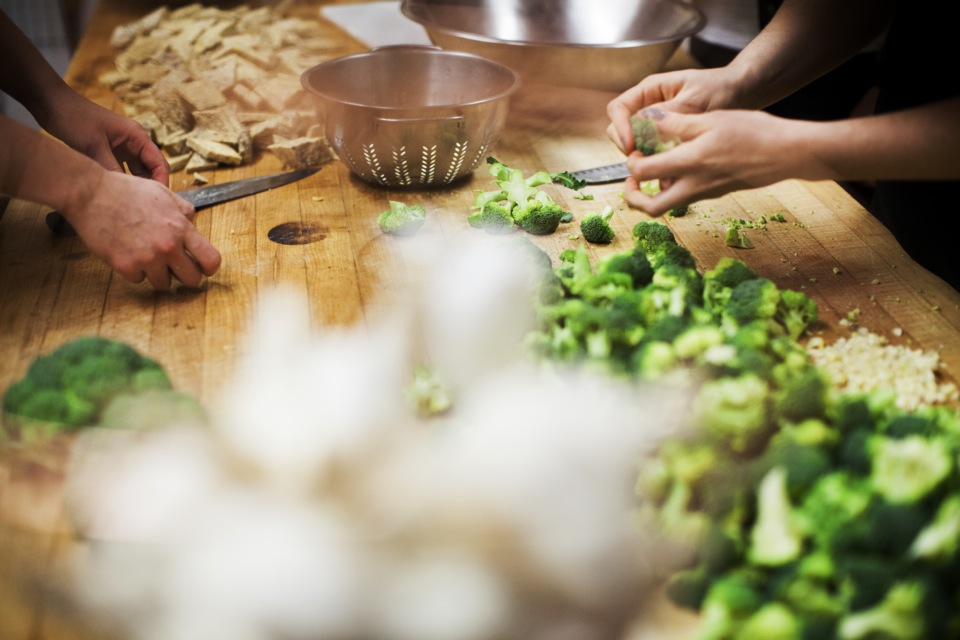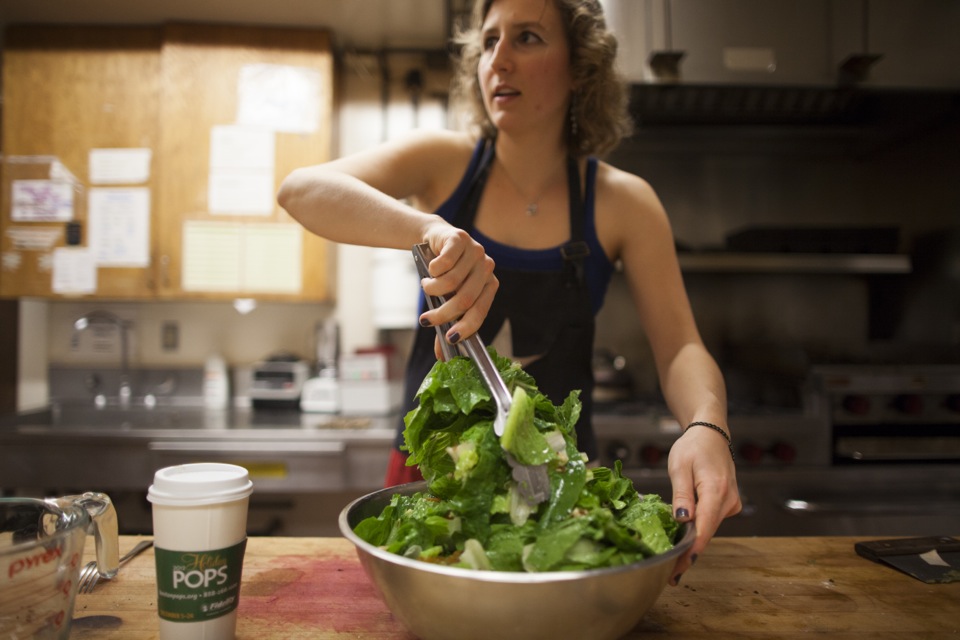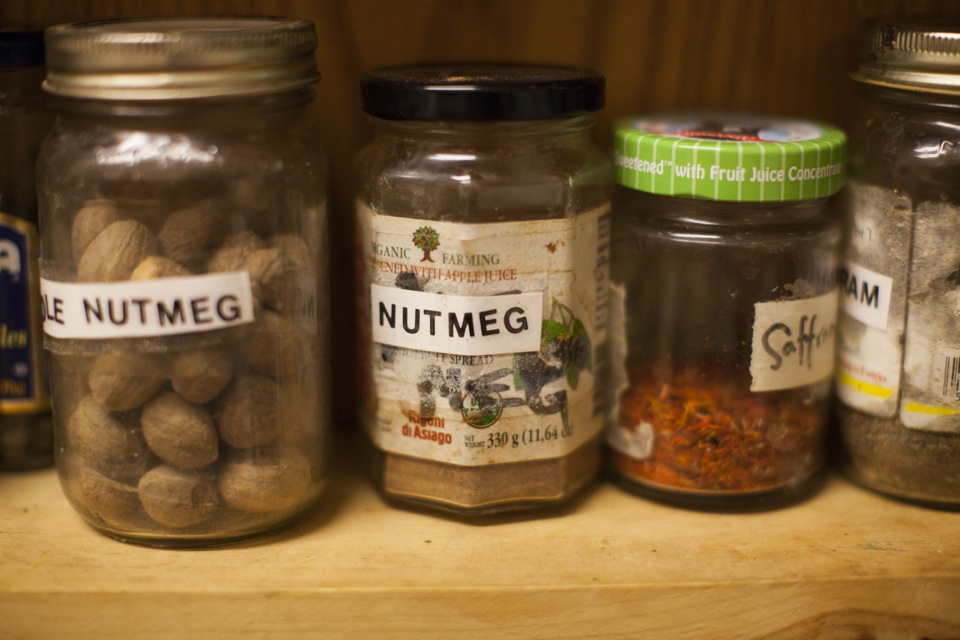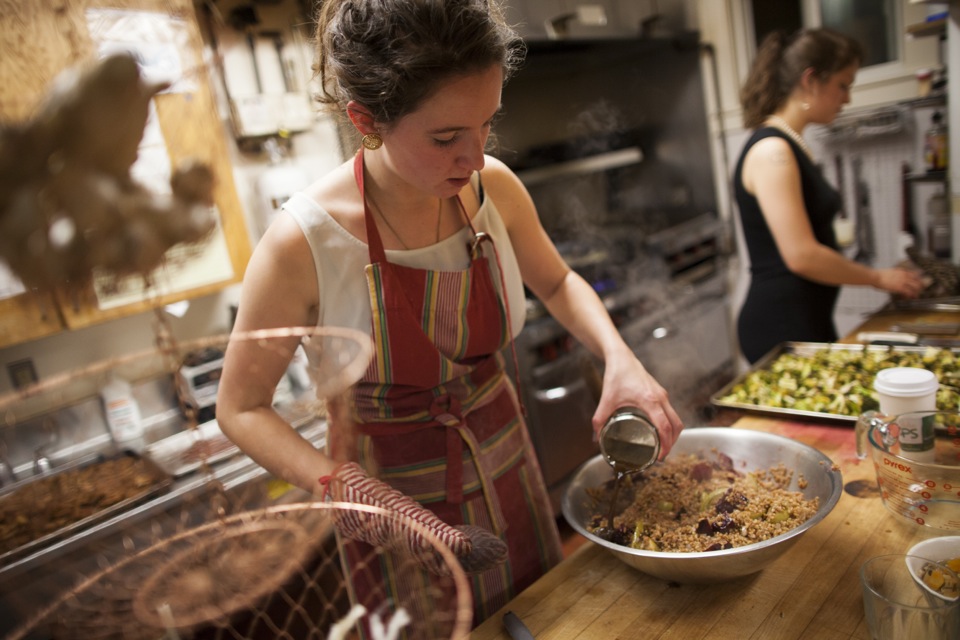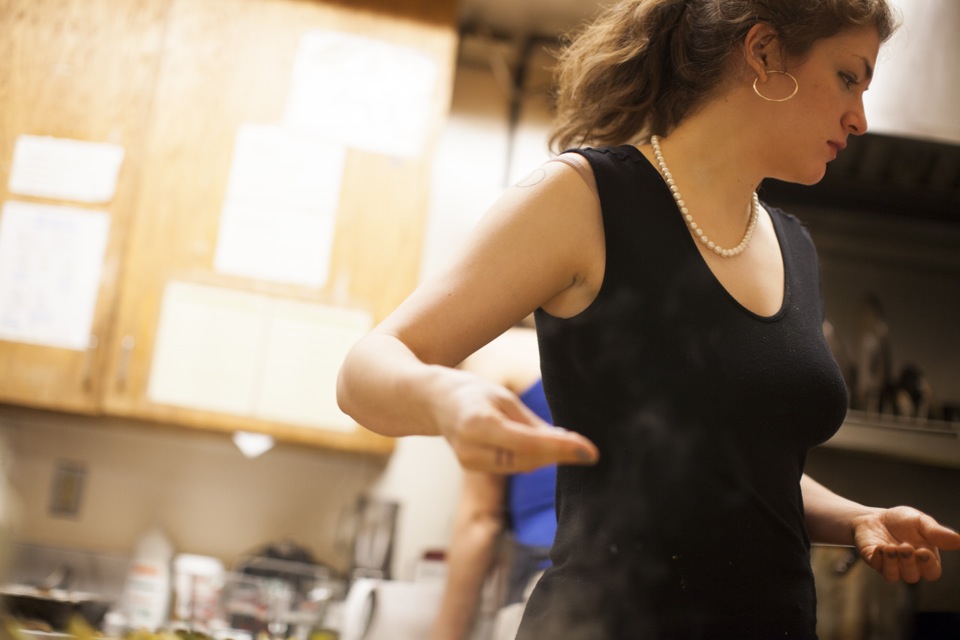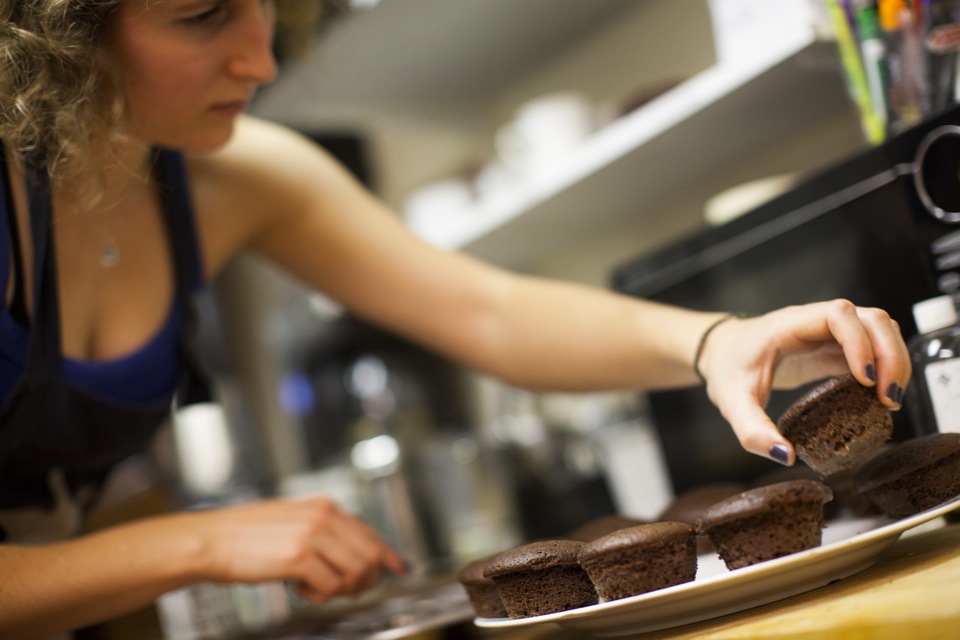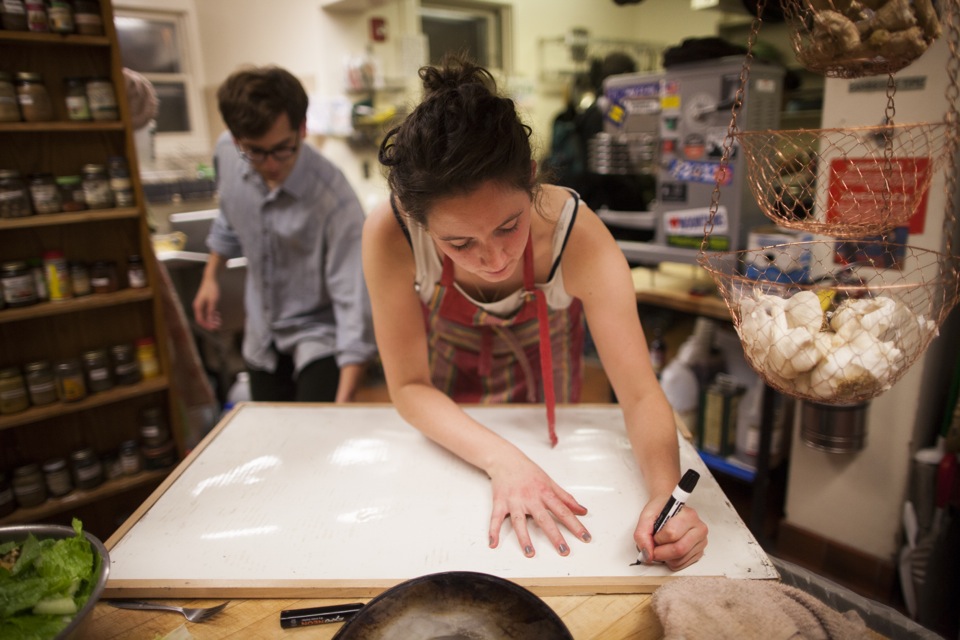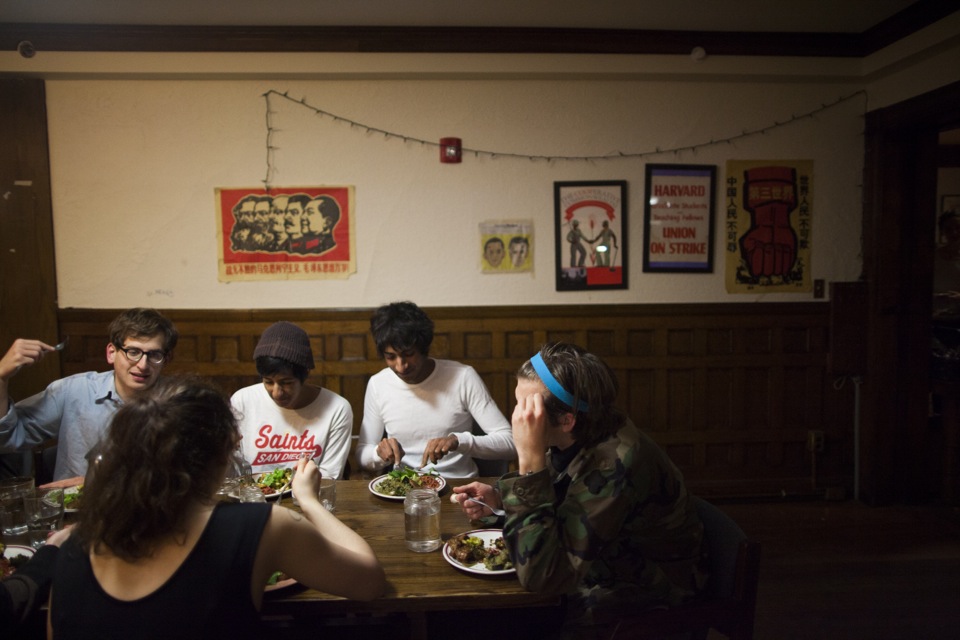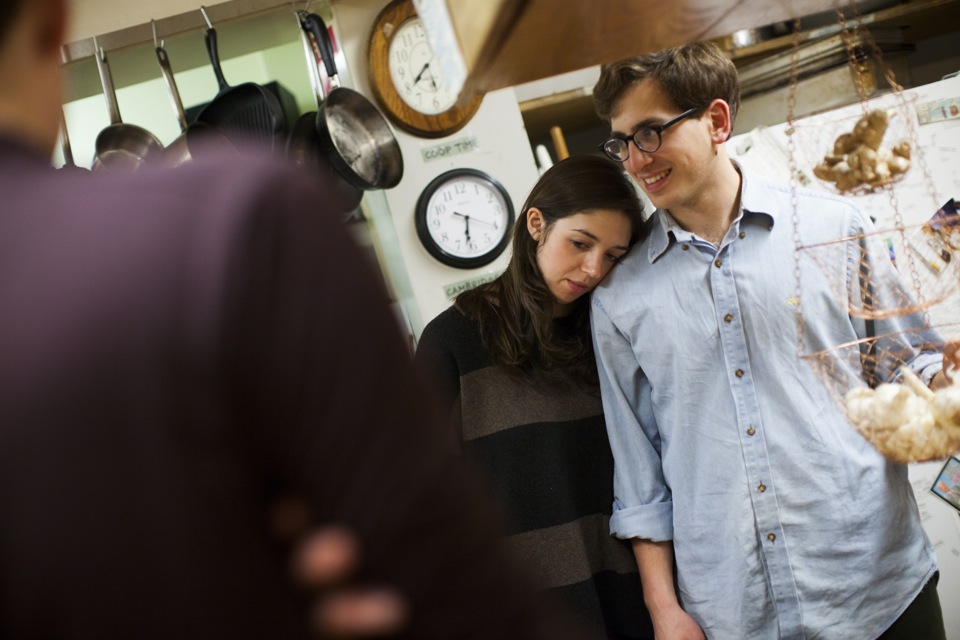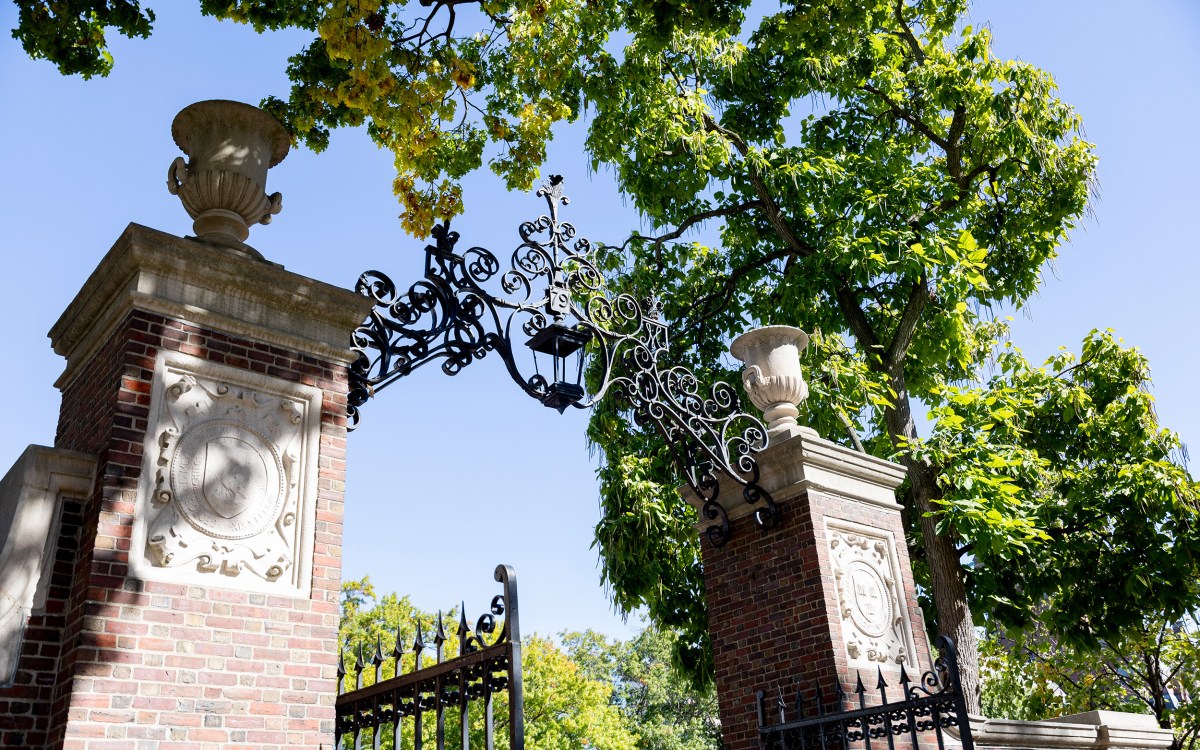Inside the Dudley House Co-op
Where the nonconformist gets domestic
The Dudley Co-op is Harvard’s sole on-campus alternative to the traditional House system. Thirty-two undergraduates live in a pair of Victorian houses nestled in a residential neighborhood just outside Harvard Square. The students buy food, cook, clean, and meet regularly to make decisions as a community.
Zoe Tucker ’13, one of the two co-op presidents, explains that Dudley attracts students “with a lot of different expectations, interests, and routines, which is part of the beauty of our co-op.”
Chores are divided up, using a point system that takes into account desirability and demand. Every day contains 11 regular chores. Students sign up every two weeks for their share of cooking, bread- and hummus-making, sweeping, tidying, and kitchen and bathroom cleaning.
One recent evening, three Dudley residents prepared dinner. Tucker and Charlotte Lieberman ’13 cooked a vegan meal, while Xanthia Tucker ’13 baked chocolate cupcakes for dessert. With ease, the three women organized a feast of honey, lemon, cayenne-roasted broccoli, grilled tempeh (marinated in soy sauce and maple syrup), eggplant coconut curry, farro with roasted beets and apples, green salad, and the cupcakes (the recipe was taken from the “Flour” cookbook by alumna Joanne Chang, Class of ’91).
As the women expertly prepared the evening meal, the conversation swirled around art, literature, film, and poetry. Fellow residents dropped in to peek at preparations and sample the menu.
As the serving platters hit the table, the industrial-sized sink filled with trays, bowls, and pots. Above the sink, a sign reads: “We are not in the least afraid of pots. We are going to inherit the kitchen; there is no doubt about that. The bourgeoisie might blast and ruin its own kitchen before it leaves the stage of history. We carry a new kitchen here, in our hearts. That kitchen is growing in this minute.”
Reworking the words of Buenaventura Durruti (1896-1936), a leading anarchist militant in Spain during the 1920s and ’30s, the scenario imagines the pots, encrusted in grease and crumbs, doing battle with kitchen workers. A nod to the leftist leanings of the occupants, it is a fitting sentiment for the nontraditional residence within the House system at Harvard.
